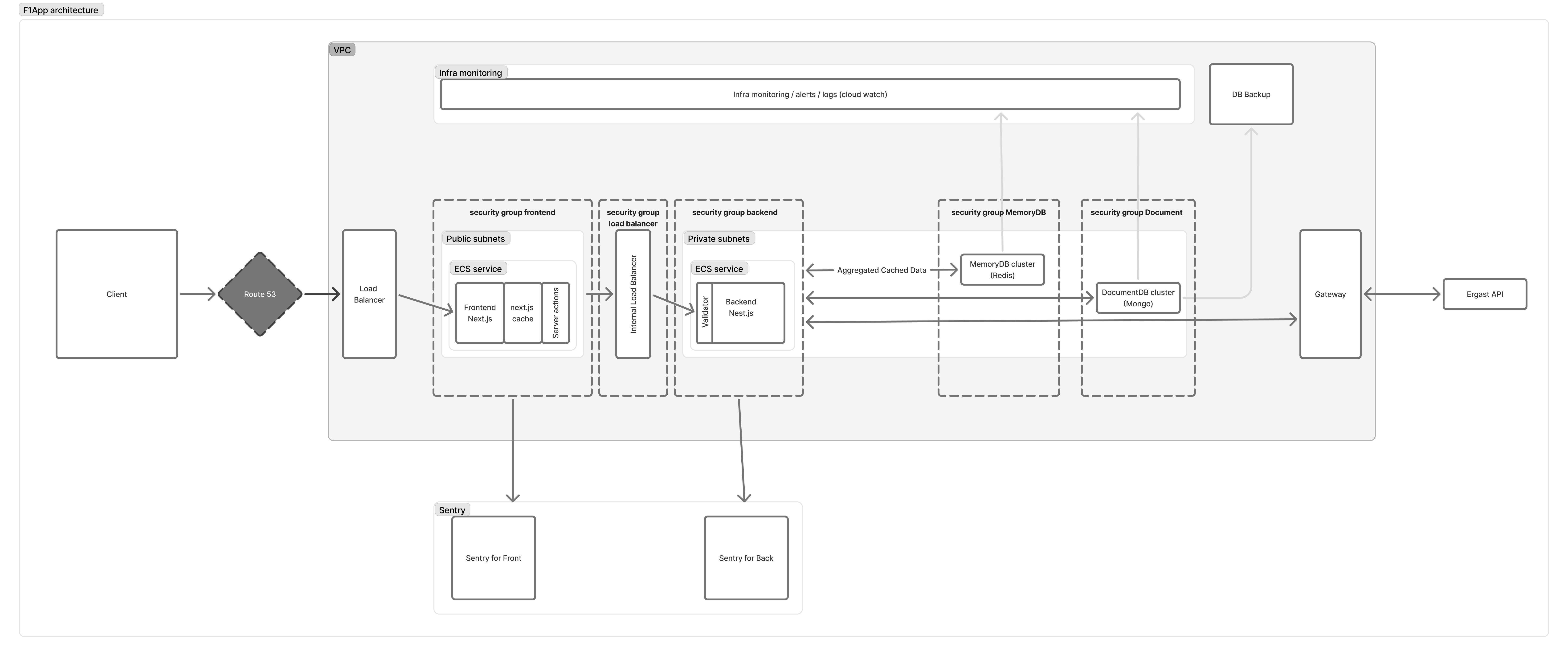🧱 Infrastructure
The F1 App is deployed on AWS using a robust and scalable architecture. Below is a detailed breakdown of the infrastructure components.
Monorepo
- Managed with Turborepo: Ensures efficient builds and task execution across multiple apps and packages.
- Apps:
- Frontend: Next.js app for user-facing features.
- Backend: NestJS API for business logic and data processing.
- Packages:
- UI Kit: Shared React components for consistent design.
- Types: Shared TypeScript types for API and UI.
AWS Architecture
Route 53
- Acts as the DNS service for the application.
- Routes traffic to the public-facing load balancer.
Load Balancer
- Distributes incoming traffic to the frontend ECS service.
- Ensures high availability and scalability.
VPC (Virtual Private Cloud)
- Isolates resources into public and private subnets for security and performance.
Public Subnets
- Frontend ECS Service:
- Hosts the Next.js frontend application.
- Includes caching for optimized performance.
- Handles server-side rendering (SSR) and static content delivery.
Private Subnets
-
Backend ECS Service:
- Hosts the NestJS backend application.
- Processes API requests and interacts with databases.
- Includes a validator for request validation.
-
MemoryDB (Redis) cluster:
-
DocumentDB (MongoDB) cluster:
Databases
MemoryDB (Redis)
- Purpose: Caching layer for aggregated and calculated data to improve performance.
- Security: Protected by a dedicated security group.
DocumentDB (MongoDB)
- Purpose: Stores application data, such as F1 seasons, races, and results.
- Security: Protected by a dedicated security group.
Gateway
- Providing outbound access for backend service from private subnet.
Monitoring and Logging
CloudWatch
- Used for infrastructure monitoring, logging, and alerting.
- Tracks application performance and logs errors.
Sentry
- Frontend Sentry: Monitors and logs errors in the frontend application.
- Backend Sentry: Monitors and logs errors in the backend application.
Static Hosting
- Next.js: Optimized for both server-side rendering (SSR) and static pages.
- Caching: Improves performance for frequently accessed pages.
Backup
- Database Backup: Regular backups of the DocumentDB cluster to ensure data durability and recovery in case of failure.
This infrastructure ensures a secure, scalable, and high-performance deployment for the F1 App.
